In an era of drought, climate change and food shortages, environmental pioneers have joined forces to help tackle some of the world's most pressing issues through technological advancement.
Here are 10 burgeoning technologies that have the potential to help revolutionize our planet of consumerism. Some are currently in development and others are trying to gain a greater foothold in society, but all are promising solutions to some very real threats the world is facing.
Vertical Farming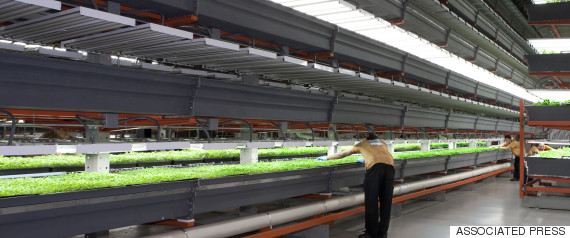
The future of modern agriculture could very well be found indoors. Vertical farms grow plants hydroponically (without soil) in large, multistory buildings under artificial light. Crops can be stacked on top of each other and grown far more quickly than with traditional farming methods.
Some advocates argue this new technology could become the norm as soon as 2050, while crop land grows scarce and a booming population demands more food. In the short term, vertical farms can be up to 100 times more productive than fields, and all produce is grown organically because of the nature of the contained environment.
Green Burial
Sure, you can be as green as you like while you're alive, but what about your environmental impact after you're dead? A new market for sustainable burials has blossomed to help counter the carbon-intensive and chemical-filled methods currently employed.
You can now be buried in everything from a "mushroom death suit" to a biodegradable casket, sans embalming. Another, more creative approach takes your ashes and puts them into "reef balls" that can help restore damaged coral ecosystems. The (under)world is your oyster.
Better Lighting
Lighting has come a long way in the past few years. The U.S. government banned many energy-guzzling incandescent light bulbs at the beginning of 2014 in favor of compact fluorescents and LEDs.
But it's the application of these new lighting technologies that's so exciting. LEDs have been named as a potential weapon against the mega-deadly plight of malaria in developing regions of Africa. And next-generation LED technology has helped vertical farming, mentioned above, take root.
Widespread Composting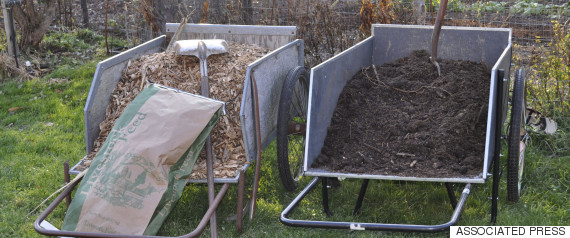
Americans are awful about throwing things away. The average person in the U.S. produces about 4.4 pounds of trash a day and recycles just a third of that. But the Environmental Protection Agency estimates at least 75 percent of all trash could be diverted to recycling and compost facilities if people were a little less liberal with what they toss in garbage bins.
Several cities have instituted far-reaching composting and recycling programs to help cut back on waste and keep food scraps out of landfills. Early this year, in an effort to increase composting, Seattle made it illegal to throw food and food waste into the trash.
Batteries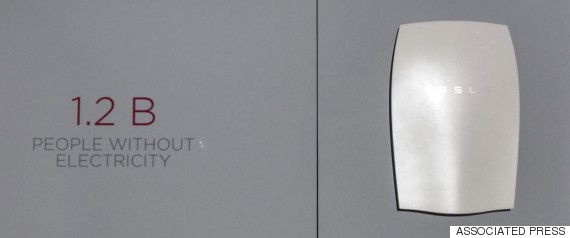
Batteries are due for an upgrade.
Elon Musk's Tesla has said it plans to build a massive factory sometime in 2017 that would supply lithium-ion batteries for electric cars -- up to 500,000 a year. The company also announced a new line of rechargeable batteries that would store solar energy and power homes and businesses. They have been called the "iPad of stationary storage."
Renewable Energy At Home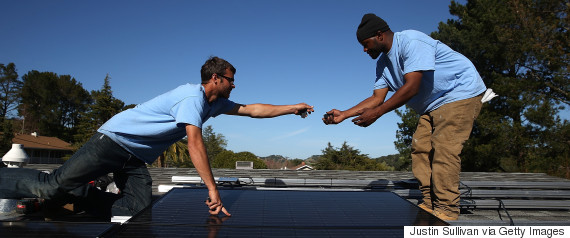
Speaking of renewables, the falling cost of solar power has made it far more affordable for the everyday homeowner to install solar panels on their roofs. The cost of solar has fallen from around $150 per watt in 1970 to less than 60 cents a watt today.
But the U.S. is still lagging behind other countries. Americans have installed solar arrays on about 600,000 homes and businesses so far. But places like Germany have far more prolific coverage. The country reach a point one day last year when it produced nearly 75 percent of its entire energy demand from renewables.
Offshore Wind Power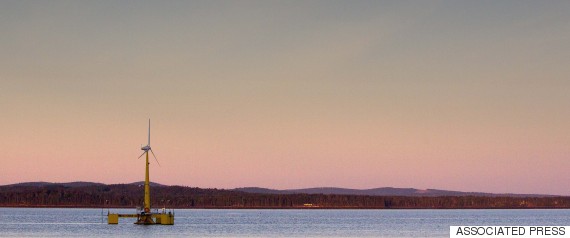
One of the last great hurdles for renewable energy is offshore wind -- turbines located just off the coast that can generate near-constant green power.
Cape Wind was hailed as the first offshore wind array off the U.S. coast. But the multibillion-dollar project has faced a series of funding hurdles and the future of the farm is in doubt. Other countries have been more successful, with advances including a wind farm in Scotland that drew the ire of Donald Trump and floating turbines off the coast of Fukushima, near the site of Japan's 2011 nuclear disaster.
Reusable Rockets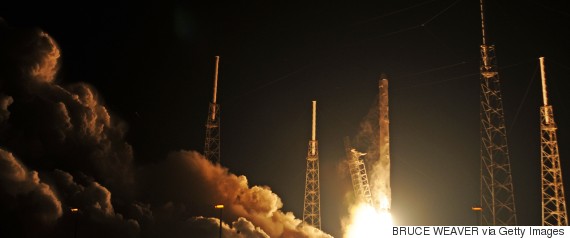
SpaceX, another Musk company, has been trying to revamp the space exploration game and fuel our "Star Trek" fantasies with reusable rockets.
Rockets are notoriously expensive, and Musk has long advocated for reusable shuttles, which he says could reduce the cost of space travel by a factor of 100. SpaceX has had some trouble with its first three test flights, but it's only a matter of time until Musk sticks the landing.
Drought-Tolerant Crops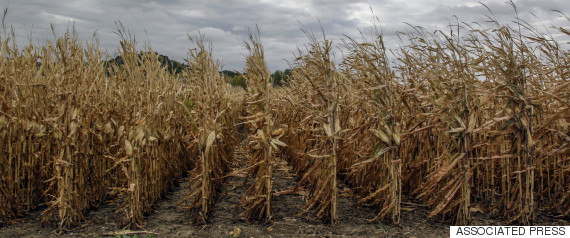
With the drought in California still raging, many farmers are worried about the future of their water-guzzling fields. Despite widespread water cutbacks for homeowners, agriculture hasn't been affected by the drought-fighting mandates of Gov. Jerry Brown (D).
Moving crops to less-parched areas of the country isn't always feasible, but farmers can instead plant drought-tolerant crops, such as genetically modified, resilient seeds that can surive with less water.
(Cheaper) Green Vehicles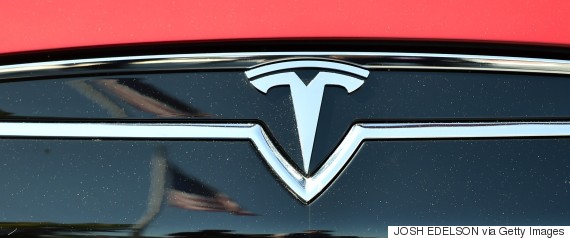
Yes, many of us can admire a Tesla Model S from across the street, but the $70,000 starting price is still exorbitant. Tesla began selling used electric vehicles in May, but other companies are itching to join the fray.
Tesla said it is allowing others to access its patents to help boost innovation surrounding green automobiles, and BMW has started to pump out electric vehicles that start at almost $30,000 less than the Model S.

